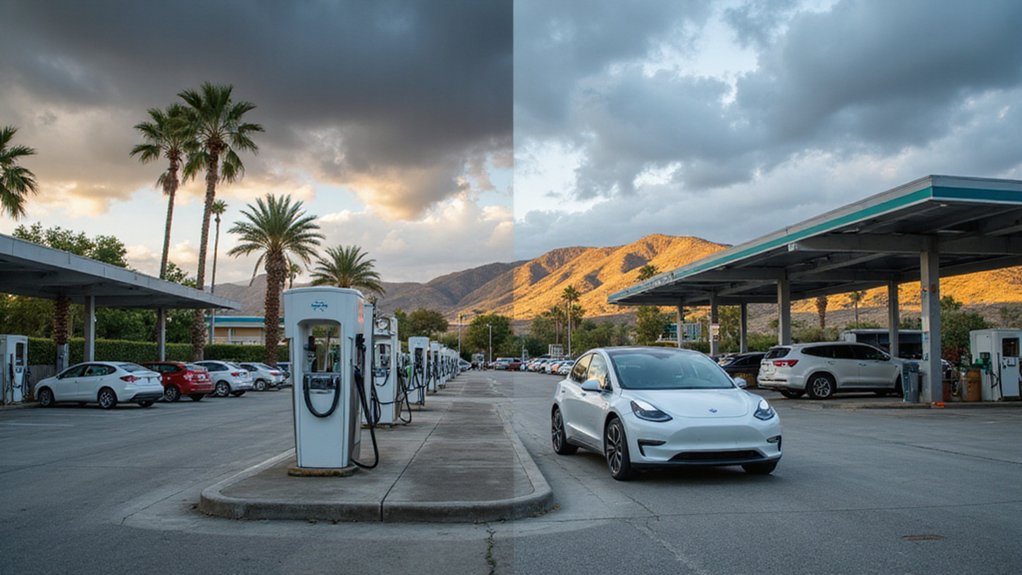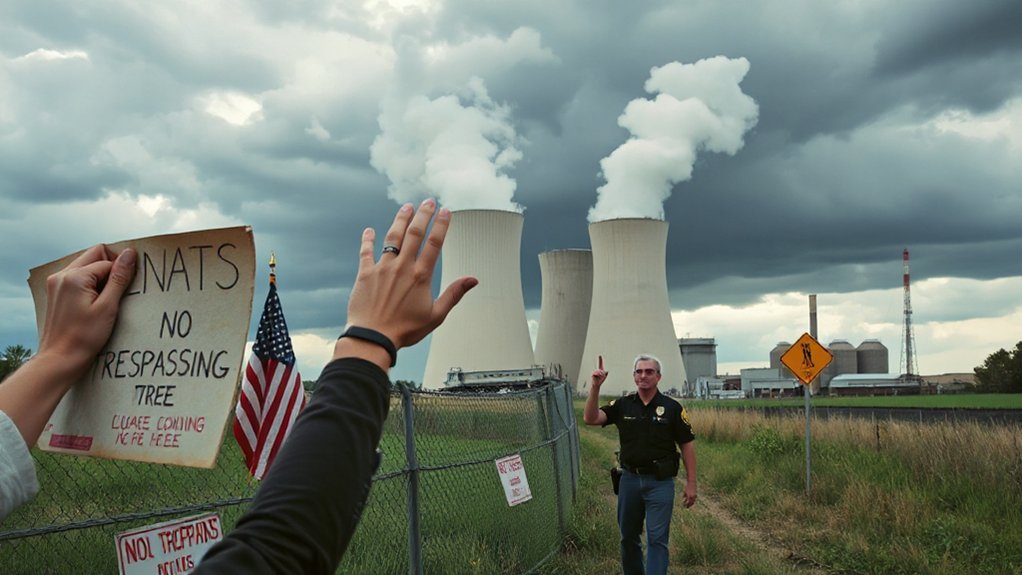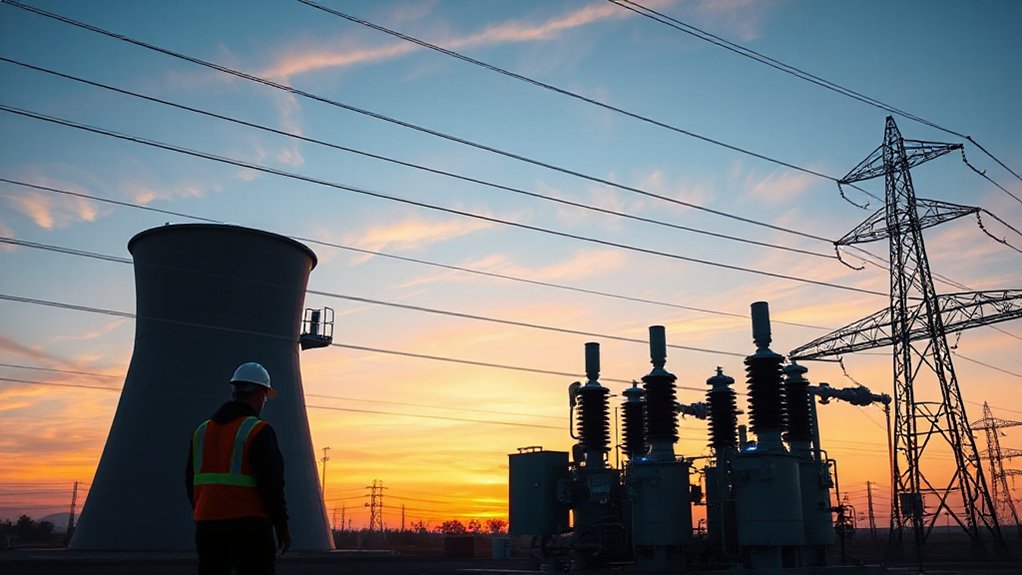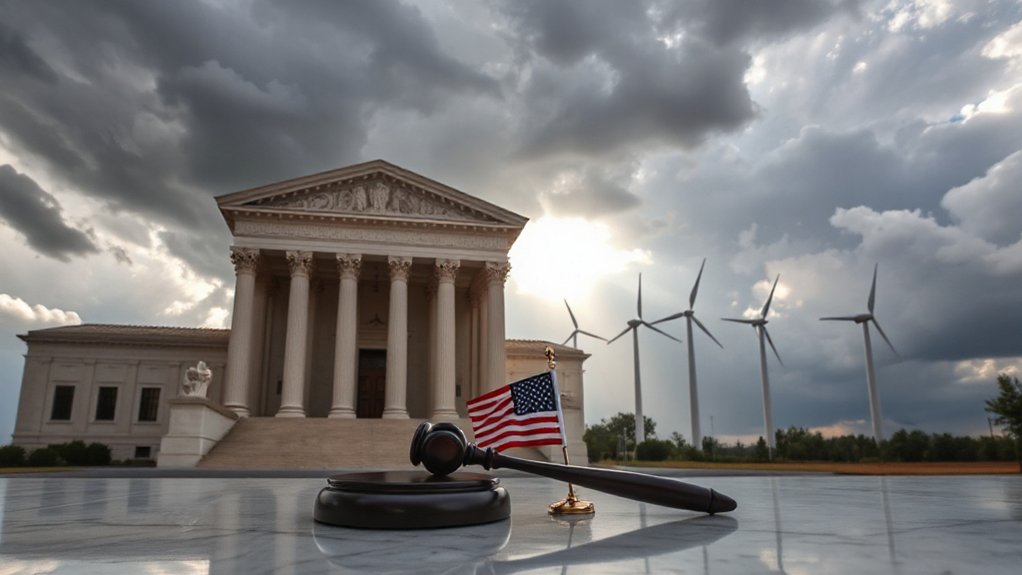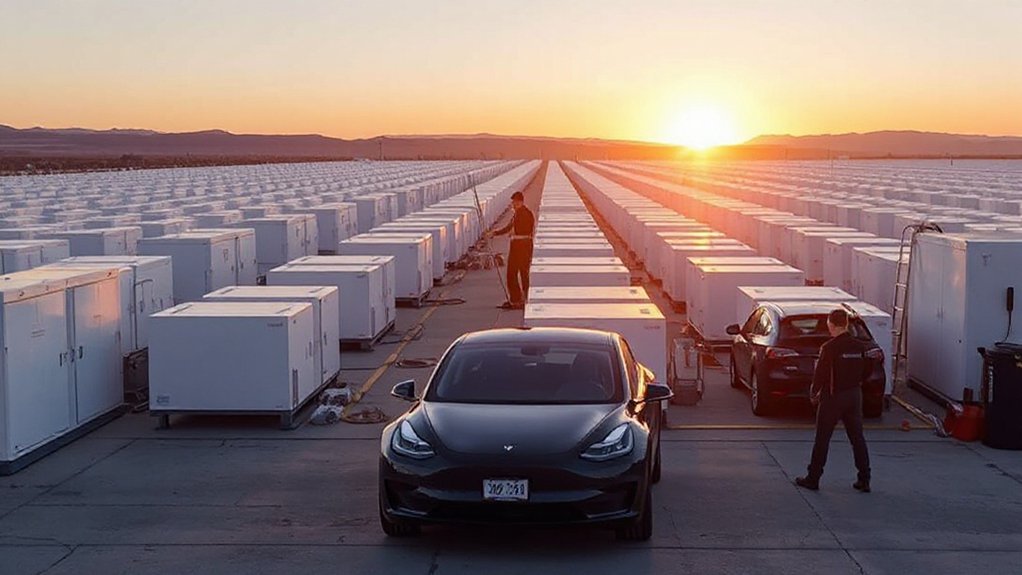The U.S. Senate voted 51-44 to revoke California’s EPA waiver on May 22, 2025, dealing a major blow to the state’s plan to phase out gasoline-only cars. The Republican-controlled Senate’s vote targeted California’s Advanced Clean Cars II rule, which was enacted in 2022 and approved by the EPA in December 2024.
California’s rule would’ve required 35% of new vehicles at dealerships to be zero-emission or plug-in hybrids starting in 2026. This percentage would’ve increased each year until reaching 100% by 2035. The California Air Resources Board created this mandate under the Clean Air Act, making it one of the state’s most ambitious environmental policies. The program was projected to prevent 1,200 premature deaths and deliver $13 billion in public health benefits while eliminating nearly 70,000 tons of smog-forming emissions by 2040.
California mandated 35% zero-emission vehicles by 2026, reaching 100% by 2035.
For nearly sixty years, California has had special permission to set its own air pollution standards that are stricter than federal rules. The EPA waiver system recognizes California’s historical leadership in managing emissions. The Senate’s vote undermines this longstanding authority and also repeals waivers for tougher diesel truck regulations. The Senate used the Congressional Review Act to overturn California’s waiver, allowing a simple majority vote instead of the usual 60 votes needed for most legislation.
This decision affects more than just California. Sixteen states and the District of Columbia follow California’s emissions guidelines. Automakers usually don’t create different vehicle lines for different states, so California’s standards often become national standards. The Senate’s action threatens all states that have adopted these rules. The decision also disrupts efforts to expand electric vehicle adoption, which is a vital component of the renewable energy transition.
The automotive industry argued the ban wasn’t realistic and the timeline couldn’t be met. Manufacturers worried about having enough infrastructure for an all-electric fleet and questioned whether consumers would buy enough EVs to meet the requirements. They said production capacity would need massive expansion to satisfy the mandate.
Environmental organizations strongly criticized the Senate’s actions. They believe California’s standards protect public health by reducing vehicle emissions that cause asthma and other illnesses. The rules were meant to help achieve national emissions reduction goals and support California’s decades-long efforts to meet federal smog standards.
The measure now needs President Trump’s signature to become law. Legal challenges are expected, and California may look for alternative ways to regulate emissions. Environmental groups will likely organize opposition, while state officials must rethink their strategy for meeting climate goals.
References
- https://grist.org/regulation/senate-rescinds-californias-ev-rules-congressional-review-act/
- https://www.latimes.com/environment/story/2025-05-22/senate-votes-in-bid-to-overturn-california-gas-only-car-ban
- https://calmatters.org/environment/2025/05/california-electric-car-mandate-senate-revoke-waiver/
- https://www.bhfs.com/insights/alerts-articles/2025/senate-votes-to-reject-california-s-ban-of-gas-powered-cars
- https://www.nbcbayarea.com/news/local/a-closer-look-us-senate-blocks-californias-gas-car-ban/3875769/
